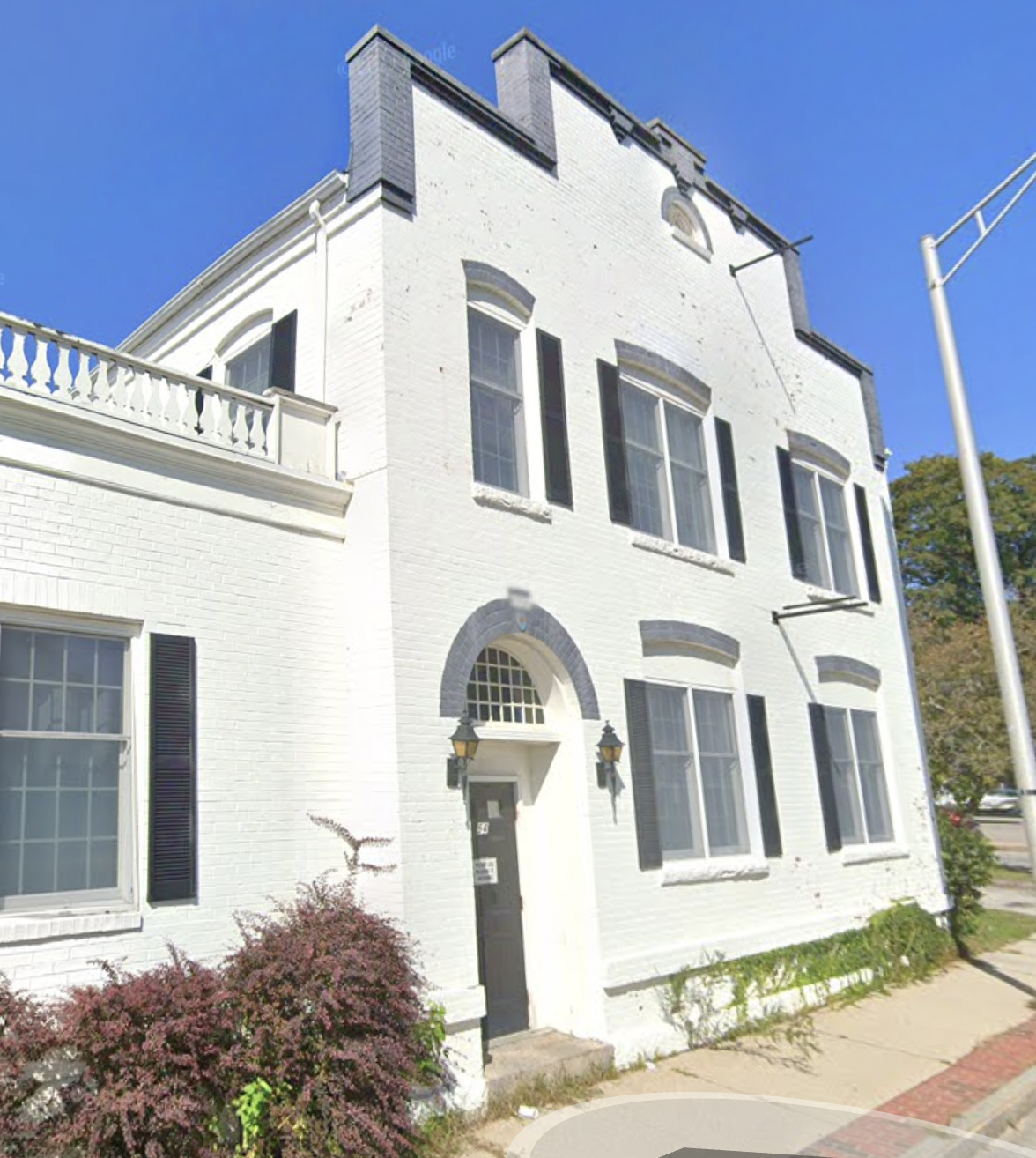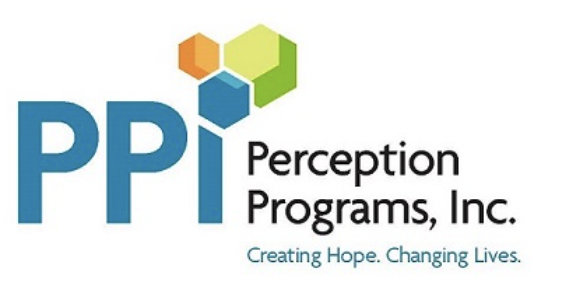Perception Programs - Perception House
Overview
Perception Programs - Perception House is a substance abuse treatment center for people seeking treatment near Windham County. As part of their treatment modalities for recovery, Perception Programs - Perception House provides cognitive behavioral therapy, telemedicine/telehealth therapy, and substance use disorder counseling during treatment. Perception Programs - Perception House is located in Willimantic, Connecticut, accepting medicaid for treatment.
Perception Programs - Perception House at a Glance
Payment Options
- Medicaid
- State-financed health insurance plan other than Medicaid
- Federal, or any government funding for substance use treatment programs
- Cash or self-payment
Assessments
- Screening for tobacco use
- Comprehensive mental health assessment
- Comprehensive substance use assessment
- Outreach to persons in the community
- Screening for mental disorders
Age Groups
- Young adults
- Adults
Ancillary Services
- Case management service
- Suicide prevention services
- Acupuncture
- Mental health services
- Social skills development
Accreditations
State mental health department:
State mental health department accreditation refers to the process of evaluating and certifying the quality and standards of a state's mental health department, ensuring that it provides high-quality services and meets specific criteria for mental health care. The accreditation process is performed by a third-party organization and helps to improve the overall care and treatment of individuals with mental health conditions.
State department of health:

Government agencies issue State Licenses, which grant rehabilitation organizations permission to conduct their operations lawfully within specific geographic regions. Licenses needed to operate are typically determined by the type of rehabilitation program offered by the facility and its physical location.
The Joint Commission:

The Joint Commission, previously known as JCAHO, is a nonprofit organization that accredits rehabilitation organizations and programs. Established in 1951, its mission is to enhance the quality of patient care and showcase excellence in healthcare delivery.
Treatment At Perception Programs - Perception House

Conditions Treated
Alcoholism:
Alcohol addiction is a health problem where drinking takes control over a person's life. It affects how their brain thinks and acts, leading to strong desires to drink, bad feelings, sudden actions, and discomfort when not drinking. To help someone with this problem, there are treatments like detox, counseling, group support, and learning coping methods. While treatment can't completely cure the urge to drink, it helps people regain control of their lives and feel better overall.
Mental health treatment:
Mental health treatment involves various therapies and support services provided by licensed professionals to address mental health issues. These interventions, which can include therapy, medication, and holistic approaches, aim to enhance well-being, improve coping, and empower individuals to lead fulfilling lives. It's personalized, comprehensive care for mental health challenges.
Substance use treatment:
Substance use rehabilitation represents a holistic treatment strategy tailored to aid individuals grappling with drug or alcohol addiction. This comprehensive rehabilitation method encompasses two key aspects: first, addressing the physical dependency, often commencing with detoxification, and second, tackling the psychological triggers through a range of therapeutic techniques. The ultimate aim is to empower individuals to attain and sustain sobriety while providing them with the necessary skills and coping mechanisms to successfully reintegrate into society and lead a life free from substance abuse.
Co-occurring Disorders:
Dual-diagnosis rehabilitation centers specialize in the treatment of individuals who suffer from a co-occurring mental health disorder and a substance use disorder. This complex interplay between addiction and mental health can make recovery more challenging, as each condition may exacerbate the symptoms of the other. Dual-diagnosis rehabilitation centers offer an integrated approach that addresses both issues simultaneously and often includes a comprehensive assessment for an Integrated Treatment Approach through Holistic Therapies, including family therapy and aftercare treatment.

Levels Of Care
Hospital inpatient treatment:
Residential treatment programs provide housing, meals, and substance abuse treatment, offering patients an environment dedicated entirely to their recovery, distinct from their everyday life. While some rehab facilities concentrate on short-term stays lasting a few days to a couple of weeks, others emphasize long-term care spanning several weeks to months. Many centers offer both, customizing the treatment based on each patient's unique needs.
Long-term residential:
Extended treatment plans frequently encompass residential initiatives where patients stay on-site throughout their therapy, tailored to their specific requirements. Professionals are available 24/7 at these facilities to provide continuous assistance. Treatment durations can vary, from 90-day rehabs to half-year stays, annual programs, or even up to two-year durations if necessary.
Aftercare:
Aftercare treatment refers to the continued support and care that individuals receive following the completion of their primary treatment program for substance abuse or addiction. This phase aims to aid individuals in maintaining their sobriety, improving personal skills and coping strategies, and integrating back into society. Aftercare can include ongoing therapy, support group meetings, education, and monitoring, which are crucial for preventing relapse and promoting long-term recovery. Through a combination of community support, accountability, and personal development, aftercare provides a structured pathway for individuals to continue their recovery journey in a supportive environment.

Treatment Modalities
Cognitive behavioral therapy:
Cognitive Behavioral Therapy (CBT) is a therapeutic approach that emphasizes the interconnectedness of thoughts, emotions, and actions. It promotes healthy reactions to thoughts and emotions, steering individuals away from harmful responses such as substance abuse. Proven effective for various addiction recoveries, CBT enhances an individual's self-awareness and self-control. Through CBT, individuals learn to better gauge their emotional well-being, communicate more effectively, and handle stress without resorting to drugs or alcohol.
Telemedicine/telehealth therapy:
Telehealth Therapy allows individuals to access mental health services remotely via secure video conferencing. This level of care offers qualified therapy from the comfort of one's home, removing geographical barriers and often reducing wait times. Ideal for those with mobility challenges, tight schedules, or those in rural areas, it combines convenience with consistent, high-quality mental health support.
Substance use disorder counseling:
Substance use disorder counseling treatment modalities refer to various approaches and methods used in the counseling and treatment of individuals with substance use problems. This can include individual therapy, group therapy, cognitive behavioral therapy, motivational interviewing, family therapy, and 12-step programs. The goal is to help the individual overcome their substance use, develop healthy coping skills, and lead a fulfilling life in recovery.
Trauma-related counseling:
Trauma therapy delves into past traumatic events that might be influencing a client's current life experiences. Often, trauma serves as a significant precipitant or underlying cause of addiction. Such traumas can arise from childhood sexual abuse, domestic violence, growing up with a mentally ill parent, early parental loss, and experiences of sexual assault in teen or adult years, among other circumstances. Trauma therapy aims to aid the individual in processing and navigating beyond these traumas, guided by the expertise and empathy of skilled mental health specialists.
Smoking/vaping/tobacco cessation counseling:
Tobacco Cessation Counseling is a specialized form of guidance and support aimed at helping individuals quit tobacco use. Through a combination of motivational strategies, behavioral techniques, and education on the health risks associated with tobacco, trained counselors assist users in understanding their addiction, developing a personalized quit plan, and navigating the challenges of withdrawal and relapse prevention. This counseling approach can significantly increase the likelihood of successfully quitting and maintaining a tobacco-free lifestyle.
Group counseling:
Group Counseling is a therapeutic approach where individuals come together under the guidance of a trained counselor to share experiences, provide mutual support, and gain insights. It fosters a sense of community, promotes understanding through diverse perspectives, and offers personal growth and problem-solving strategies.
Family counseling:
Family Counseling is a therapeutic approach that seeks to address and improve communication, understanding, and dynamics within a family unit. By addressing conflicts, emotional distress, and behavioral challenges, a trained therapist provides guidance and tools for family members to strengthen bonds, resolve issues, and foster a healthier family environment.
12-step facilitation:
Recovery approaches rooted in 12-step programs prioritize extensive peer mentorship and highlight personal development as a cornerstone for maintaining sobriety. Attending 12-step meetings, which are confidential, cost-free, and held daily, is a fundamental component. The 12 steps are grounded in spiritual tenets, guiding participants to confront the core issues of their addiction, assume accountability for their decisions, and recognize aspects out of their control. Chosen sponsors offer individualized guidance and support.
Contingency management/motivational incentives:
Contingency management and motivational incentives are evidence-based treatment modalities used in addiction and behavioral health programs. Contingency management involves the use of rewards to reinforce positive behaviors and change negative behaviors, while motivational incentives provide incentives to engage in treatment and sustain recovery. Both approaches are designed to increase motivation and engagement in treatment and have been shown to be effective in promoting positive outcomes.
Motivational interviewing:
Motivational Interviewing (MI) is a client-centered counseling approach designed to enhance an individual's intrinsic motivation to change by exploring and resolving ambivalence. Through empathetic engagement and evoking personal reasons for change, MI helps individuals recognize the negative consequences of their substance use and empowers them to take steps toward recovery.
Anger management:
"Anger Management" refers to a set of techniques and strategies designed to help individuals recognize and control their anger. Through a combination of cognitive behavioral therapy, self-awareness exercises, and coping mechanisms, individuals can better understand the triggers and reactions associated with their anger, ensuring they respond more positively and constructively. Effective anger management prevents potential conflicts and outbursts and promotes healthier relationships and emotional well-being.
Community reinforcement plus vouchers:
Community Reinforcement + Vouchers is an evidence-based intervention strategy designed to treat substance use disorders. It combines behavioral therapy with a voucher-based system that rewards individuals for substance-free urine tests. This approach encourages individuals to reduce or abstain from drug use by emphasizing positive reinforcement, skill-building, and tangible incentives, fostering healthier life choices and improved community relations.
Relapse prevention:
The Relapse Prevention Model plays a pivotal role in the treatment of alcoholism. Utilizing a blend of Cognitive Behavioral Therapy (CBT), this model is particularly valuable for individuals who have experienced multiple relapses. Through this approach, those in recovery are equipped with essential coping skills, empowered for their journey, and guided in adopting healthier habits.
Treatment for other addiction disorder:
Treatment for other addiction disorders typically involve a combination of therapy and medication. This may include individual therapy, group therapy, and behavioral therapy. Medications may be prescribed to help manage symptoms and reduce cravings. Additionally, support groups and aftercare programs can be beneficial in maintaining recovery and preventing relapse. The treatment modality should be tailored to the individual's specific needs and circumstances.
Individual psychotherapy:
Individual therapy is a one-on-one therapeutic interaction between a therapist and a client to address personal challenges, foster self-awareness, and promote mental, emotional, and behavioral growth. This setting provides a confidential and supportive environment for individuals to explore their thoughts, feelings, and behaviors, identify goals, and develop coping strategies. Individual therapy can be beneficial for a range of concerns, including anxiety, depression, stress management, relationship issues, and life transitions.
Ancillary Services
Additional Services
- Pharmacotherapies administered during treatment
- Mentoring/peer support
- Breathalyzer or blood alcohol testing
Special Programs
- Clients with co-occurring mental and substance use disorders
- Criminal justice (other than DUI/DWI)/Forensic clients
- Clients who have experienced trauma
- Clients who have experienced sexual abuse
Contact Information
DISCLAIMER: The facility name, logo and brand are the property and registered trademarks of Perception Programs - Perception House, and are being used for identification and informational purposes only. Use of these names, logos and brands shall not imply endorsement. BetterAddictionCare.com is not affiliated with or sponsored by Perception Programs - Perception House.


